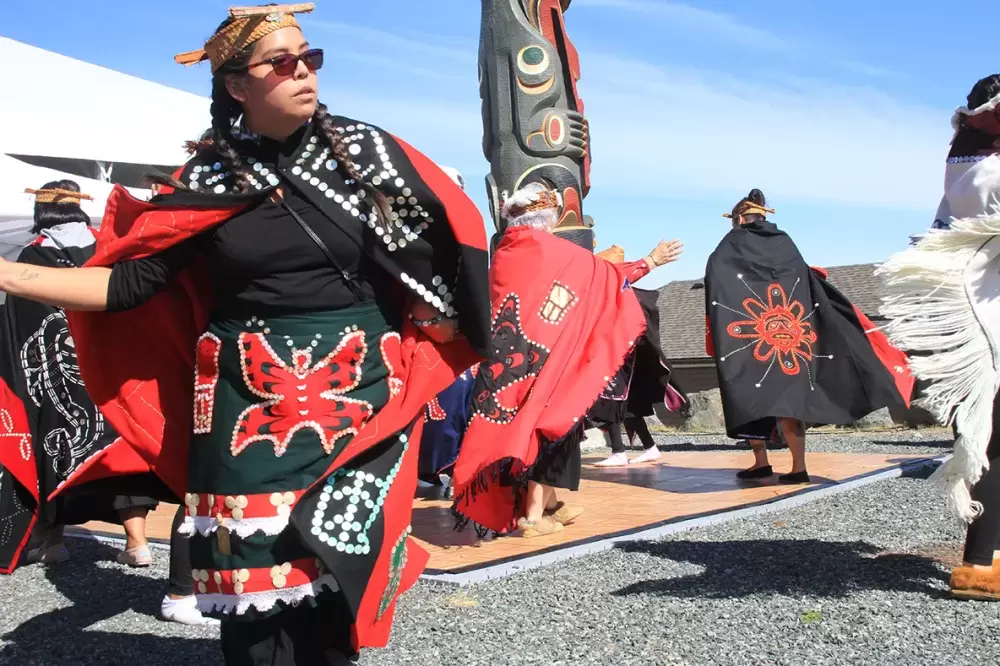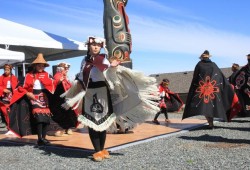As the first person in her family to go to university, Justice Manson is driven to set an example.
The 20-year-old Tla-o-qui-aht First Nation member is beginning fourth-year political science classes this fall at Vancouver Island University, with future aspirations of entering law school. A former foster child, Manson is interested in advocating for those who don’t have a voice.
“If you want real change you have to be able to have an educational basis,” said Manson, who grew up in Nanaimo.
As she pursues studies Manson often thinks of her three siblings, two of whom have been adopted.
“I have a brother who is in a group home,” she added. “I try to be there emotionally and financially as much as I can because he doesn’t really have anyone advocating for him.”
Miranda Hopkins is also the first member of her family to attend post-secondary studies. This month the 25-year-old mother of two begins her Bachelor of Arts courses, with an interest in criminology.
“I’m really fascinated by the forensic analyst side of the police field,” said Hopkins, a Mowachaht Muchalaht member who lived in Port Alberni for the last 10 years.
Now she has relocated to Nanaimo with her two sons. Coordinating her children’s transportation to elementary school can be a challenge, but fortunately help has come from family.
“On the days I have class before they go to school my mom or my stepdad usually walks them,” said Hopkins. “If I have class that goes until after they’re done school my stepdad picks them up as well.”
With approximately 2,000 Indigenous students attending, one eighth of VIU’s campus is aboriginal. But additional support announced this week plans to increase these numbers, doubling the capacity of some First Nations to send its members to the university. Through support provided by the Mastercard Foundation and Rideau Hall Foundation, VIU is dedicating an additional $13.5 million to help Indigenous students pursue studies over the next five years.
Nine million of this funding will go into 250 new scholarships the university can now provide to Indigenous learners each year, said Sharon Hobenshield, VIU’s Director of Aboriginal Education and Engagement.
“The No. 1 reason that students don’t access post-secondary is a financial reason: lack of funding. And so communities have opportunities to fund through the [Indigenous and Northern Affairs Canada] funding, but it’s based on membership,” she said, noting that in some cases the university will now be able to match the number of students a First Nation can send to VIU. “For me the goal is creating access where there wasn’t access previously.”
VIU already has supports in place for Indigenous students. The Gathering Place building provides a culturally appropriate environment, while nine elders in residence help aboriginal students adapt to university life. Now two more elders are joining the university and three educational navigators were hired over the summer to engage with First Nations across Vancouver Island. Another navigator is being secured for VIU’s campus in Powell River.
“We’re already set to go to Ahousaht in a couple of weeks,” said Hobenshield. “The funding provides for that extensive travel.”
As First Nations peoples are fastest growing demographic in British Columbia, the additional funding for aboriginal students represents an effort from VIU to keep up with the needs of Vancouver Island communities. This week Mastercard and the Rideau Hall Foundation also announced $4.6 million in support for Yukon College, where 30 per cent of its students are aboriginal.
When the funding was announced on Wednesday, Sept. 20 at VIU’s Nanaimo campus, the university’s President and Vice-Chancellor Dr. Ralph Nilson noted how Canada is challenged by its past history with Indigenous peoples – but post-secondary institutions can help to provide a different future.
“Education is the key to social change,” he said.
It’s Miranda Hopkins’ hope that she is setting a precedent in her family for higher education.
“I want both of my sons to know that when they’re finished with their high school…that door is open for them,” she said. “It is all worth it in the end, there are no limits for us - you just have to find those willing to help you get to where you need to go.”










